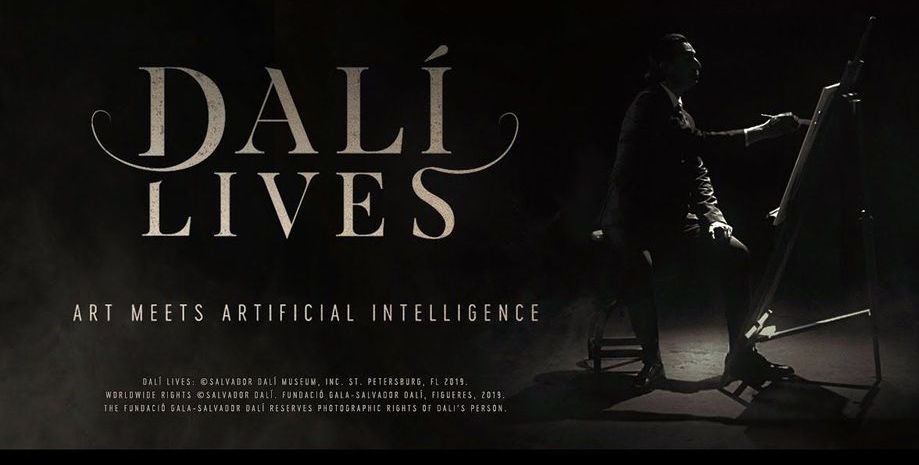Page 8795
May 20, 2019
Google’s AI can now translate your speech while keeping your voice
Posted by Quinn Sena in category: robotics/AI
Researchers trained a neural network to map audio “voiceprints” from one language to another.
May 20, 2019
Smallest pixels ever created have a heart of gold
Posted by Quinn Sena in category: mobile phones
The display on a smartphone is a modern marvel, cramming millions of pixels into the space of a few inches – but soon this may look decidedly retro. Researchers at Cambridge University have managed to create the smallest pixels in the world, about a million times tinier than those in a phone. These new pixels could be used in huge, flexible displays that are relatively easy to manufacture and cheaper to run.
May 20, 2019
An AI-generated Salvador Dali is alive and taking selfies in a Florida museum
Posted by Quinn Sena in category: robotics/AI

Visitors to The Dali Museum in St. Petersburg, Florida, will now be greeted by a digitally resurrected simulation of Salvador Dali. Created using machine learning and deepfake technologies, the digital Dali is programmed to communicate in novel ways, from commenting on the day’s weather to taking a selfie with museum patrons.
May 20, 2019
Scientists discover self-defense “switch” for stem cells
Posted by Quinn Sena in categories: biotech/medical, futurism
With the power to turn themselves into any other cell in the body, stem cells have a future as a key treatment for a range of diseases and injuries. The problem is, they lack some of the self-defense mechanisms that other cells have, leaving them open to attack from viruses and other threats. Now, researchers from the University of Edinburgh may have found a way to switch this mechanism back on, making stem cell treatments more effective.
Serotonin levels have been linked to the regulation of mood and sexual function. Emerging research now reveals more about its role in learning processes.
May 20, 2019
Deflecting Earthquakes The Way Ancient Romans Did It
Posted by Quinn Sena in category: materials
A recent French study indicates that the ancient Romans may have figured out how to deal with earthquakes by simply deflecting the energy of the waves using structures that resemble metamaterials. These are materials which can manipulate waves (electromagnetic or otherwise) in ways which are normally deemed impossible, such as guiding light around an object using a special pattern.
In a 2012 study, the same researchers found that a pattern of 5 meter deep bore holes in the ground was effective at deflecting a significant part of artificially generated acoustic waves. One of the researchers, [Stéphane Brûlé], noticed on an aerial photograph of a Gallo-Roman theater near the town of Autun in central France that its pattern of pillars bore an uncanny resemblance to this earlier experiment: a series of concentric (semi) circles with the distance between the pillars (or holes) decreasing nearer the center.
Further research using archaeological data of this theater site confirmed that it did appear to match up the expected pattern if one would have aimed to design a structure that could successfully deflect the acoustic energy from an earthquake. This raises the interesting question of whether this was a deliberate design choice, or just coincidence.
Continue reading “Deflecting Earthquakes The Way Ancient Romans Did It” »
May 20, 2019
1.5 Million Volunteers Plant 66 Million Trees in 12 Hours, Breaking Guinness World Record
Posted by Quinn Sena in category: sustainability
The central Indian state of Madhya Pradesh set a new Guinness World Record on Sunday after 1.5 million volunteers planted more than 66 million tree saplings in just 12 hours along the Narmada river.
The effort bested the state of Uttar Pradesh’s previous record-breaking feat, when 800,000 participants planted 50 million trees in one day in July 2016.
May 20, 2019
The (Likely) Reason Men Don’t Live as Long as Women
Posted by Genevieve Klien in category: futurism
Research data indicates men can expect to live an average of five fewer years than women. The reason might surprise you.
















